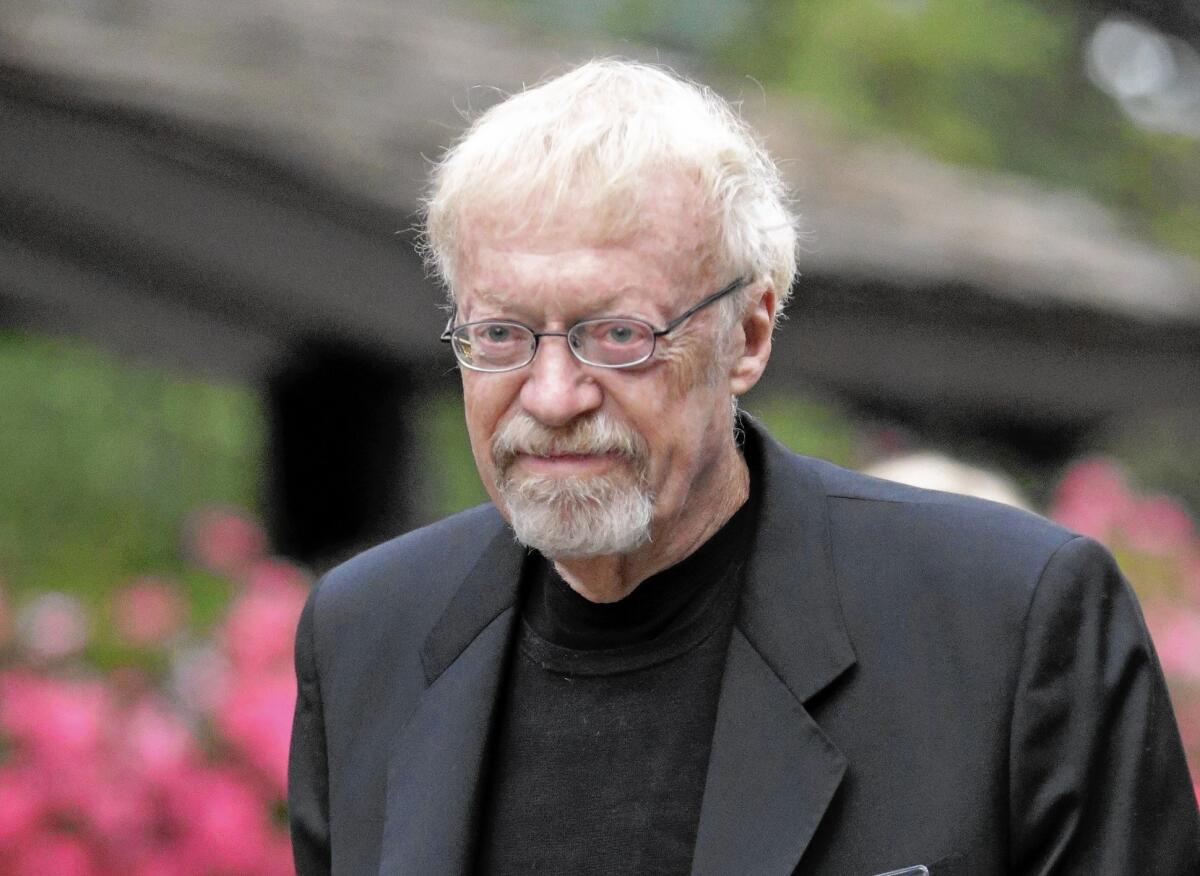Thanks to Nike’s Phil Knight, Stanford is planning an ambitious graduate scholars program

- Share via
One of the country’s most prestigious universities is aiming to bring even more cachet to its California campus.
Stanford University unveiled plans Wednesday for a program similar in style to Oxford University’s Rhodes Scholarships but more than three times as large in scope. The program would cover all academic and living expenses for 300 or more graduate students whose studies could help solve some of the world’s most vexing problems, including climate change and poverty.
The program was made possible by a $400-million gift from Nike Inc. cofounder Philip Knight, who earned his MBA from Stanford in 1962. Outgoing Stanford President John L. Hennessy, who dreamed up the program, will serve as its founding director after he steps down from his current post at the end of the summer.
“John and I dream of a future 20, 30 or 50 years from now, when thousands of graduates — who can think outside the box as skilled problem-solvers — will be working together for a more peaceful, habitable world,” Knight said in a statement.
The first class of Knight-Hennessy Scholars is expected to enroll at Stanford in fall 2018, according to the university.
Students who are accepted into the program will receive three years of funding to study law, business, medicine, engineering, humanities, education and environmental sciences. They can apply for additional funding if their degrees take longer than three years to complete, Stanford officials said.
Students must be nominated by their undergraduate universities. One-third of the slots will be earmarked for U.S. students and two-thirds will be set aside for international students.
Stanford’s program will be among the largest of its kind — 32 Americans are named Rhodes Scholars every year — and could be particularly attractive to students interested in using business principles to tackle global problems.
“If you’re interested in entrepreneurship and thinking outside the box, I’d imagine Stanford and the Silicon Valley would be really attractive,” said Kathleen McCarthy, the director of the Center on Philanthropy and Civil Society at the City University of New York.
Knight’s gift is the largest cash donation Stanford has received, and it’s among the biggest donations ever made to an American university. Hedge fund manager John A. Paulson gave $400 million to Harvard University in 2015, and Columbia University received $400 million from broadcasting mogul John W. Kluge in 2007.
The funds from Knight will be augmented by $350 million in additional gifts from other Stanford alumni, including Steven Denning, chairman of the school’s board of trustees, and his wife, Roberta.
Knight, who previously gave $105 million to Stanford’s business school, joins a growing list of philanthropists who’ve endowed scholarship programs. Stephen A. Schwarzman, chairman of private equity firm Blackstone Group, donated $100 million in 2013 to found the Schwarzman Scholars program at Tsinghua University in Beijing. And in 2000, the Bill and Melinda Gates Foundation gave $210 million to establish the Gates Cambridge Scholarship at Cambridge University in England.
The Knight donation comes amid a historic period in university fundraising. Last year, donors gave a record $40.3 billion in cash, art and other property to U.S. colleges and universities, according to the Council for Aid to Education in New York.
Twitter: @byjsong
More to Read
Sign up for Essential California
The most important California stories and recommendations in your inbox every morning.
You may occasionally receive promotional content from the Los Angeles Times.











